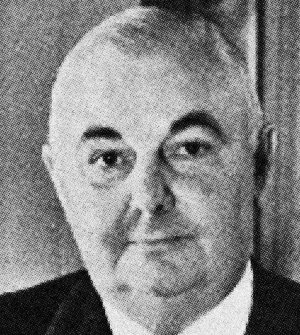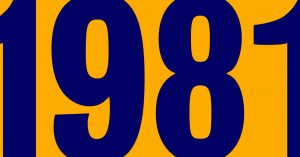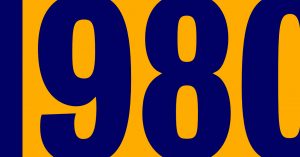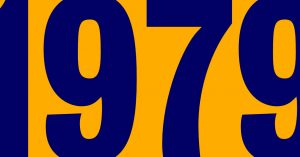ATV financial results: 1957
Prince Littler on Associated Television Limited’s 1957 results

AN ENCOURAGING IMPROVEMENT
MR. PRINCE LITTLER’S CONFIDENCE IN THE FUTURE
The second annual general meeting of Associated Television, Ltd., will be held on August 15 at Television House, Kingsway, London, W.C.
The following is the statement by the chairman, Mr. Prince Littler, C.B.E., which has been circulated with the report and accounts for the year to April 30, 1957:-
I last addressed you on the 2nd August, 1956, at which time the Company was in the middle of the off-season of advertising and the expenses of operation were considerably in excess of the Advertising Revenue. I did state, however, that I was of the opinion that the view on the success of the Company expressed by the Directors on its formation would prove to be justified. I now feel that the results for the year under review endorse that opinion.
Despite the fact that substantial losses were incurred by the Company during the summer months, and although it was not until October of last year that break-even the point was reached, those losses have since been recouped, and at the 30th April, 1957, we are able to show a profit for the year of £201,716 [£3.95m in today’s money allowing for inflation – Ed].
I feel sure you will agree that this is both satisfactory and encouraging when taking into consideration the teething troubles which are inevitable in what is not only a new company but also a major component of completely new industry.
Transdiffusion analysis
After the sheer financial hell that was the first 18 months of the new ITV, things are looking up for ATV. Official financial results like this require, at this period in time at least, a cautious optimism at most – it would be very wrong to mislead the public, after all – and Littler goes with this: the nightmare is mostly behind us, things will get better.
The first four months of ITV had consisted of two companies in one area, splitting the week between them. ITN aside, they were self-contained units, officially but still notionally in competition, and everything they put out had to be paid for on their own. If ATV wanted to make a programme, it made the programme, put the programme out and sold advertising in and around that programme. When ITV appeared in the Midlands and the North, suddenly ATV could offer that programme to ABC (on weekends) and Granada (on weekdays in the North) and if they chose to take it, charge them a percentage of the costs of making it based on population coverage plus a little profit.
For the Big Four companies (ARTV, ATV, Granada, ABC) that percentage cost was about a third to each participating company – the first three regions/four companies were divided to take as far as was possible a third of the system as it stood. That meant that ATV London could now make a programme and charge ABC Weekend two thirds of the cost if ABC chose to take it. If ABC didn’t, then ABC had to shoulder 100% of the cost of making something else. ATV Midlands was in a similar position, but faced the impossibly deep pockets of Associated-Rediffusion, which were also open to Granada – a far harder proposition to counter.
From this, the seeds of ATV’s future success were sown. With people like Prince Littler, Val Parnell and Lew Grade on the board and an outlet in London, they could tie up on weekends almost all the famous and semi-famous and wannabe talent, put out a programme live and charge ABC two-thirds of the cost of making it. On weekdays, they could switch to filmed items, made by what would become ITC (Sapphire, High Definition and several other ‘independent’ producers they controlled) and offer them to A-R and Granada, who would pay their third each but had the ability to run them whenever they liked – something not possible with live productions before videotape.
From here on in until 1968, this would be the policy: ATV London would do live spectaculars, paid for by ABC and the regional companies. ATV Midlands would do local programmes live, but their network output would largely be on film, paid for by A-R, Granada and the regionals. That film would then be sold overseas for pure profit.
Larger Advertising Revenue
The improvement in our position is due mainly to a considerable increase in advertising revenue. Since the commencement of Independent Television, the number of sets capable of receiving its programmes has steadily increased. thereby giving greater coverage, and this factor, coupled with the many success stories of the impact of the medium, has given an added incentive to advertisers to book time. As I have already mentioned, the summer is an off-season for advertising generally. Even taking this into consideration, I feel confident that we shall go through this summer without incurring the heavy losses experienced last year.
A contributory factor to the improvement of our position is the lessening of programme costs due to more comprehensive networking arrangements. There are now four stations operating seven days a week – London, Midlands, Lancashire and Yorkshire – and extensive networking of programmes between them is in force. As you will appreciate, this is to the mutual advantage of all concerned and has considerably decreased the cost of providing programmes. The Scottish Station is scheduled to come into operation on the 1st September, 1957, and will be followed by further stations in 1958.
Better Cash Position
Looking at the balance-sheet. the amount of “A” Ordinary Shares and Ordinary Shares. both Authorised and Issued. has been doubled, the Deferred shares remaining at last year’s figure of £20,000 [£391,000]. The 6% Convertible Unsecured Loan Stock has from £250,000 to £500,000 [£4.9m to £9.8m] and the 6% Unsecured Loan Stock has decreased by a similar amount. The reason for this is the conversion of £250,000 Loan Stock to Convertible Loan Stock as reported in the Directors Report. The Mortgage on the company’s Studios at Elstree has been reduced by £30,000 [£586,000] to £120,000 [£2.3m]. There is a marked improvement in the cash position at 30th April, 1957, whereas the Bank Balances and Cash in standing at Hand £240,761 [£4.7m], whereas last year the Bank Overdraft exceeded the Balances in Hand by £24,193 [£473,000]. Although Assets have been purchased during the year, owing to the incidence of depreciation they now stand at a slightly lower figure than last year.
You will see that the Directors have recommended that part of the Profit for the year should be applied in writing off the Formation Expenses of £82,795 [£1.6m] and the debit balance on Profit and Loss Account now stands at £483,794 [£9.5m] compared with £602,715 [£11.8m] last year.
High Quality of Programmes Maintained
The improvement in the company’s position since I last spoke to you is encouraging and the future continues to look promising. The company has maintained the quality of its programmes at the high level set in its early days and the forward bookings by Advertisers are higher than at the same time last year. Although I feel it my duty to inform you the forward bookings are at all times subject to eight weeks’ cancellation, I feel confident that they will continue to build up to an even more satisfactory level.
You will appreciate that the progress we have made has only been achieved by the unremitting efforts of our staff, which now totals 740 people, and I am sure you will wish to join me in expressing thanks to all our Directors, Executives and Employees for their hard work in consolidating and strengthening the company’s position and repute in the field of television.
About the author
As a public company with shareholders, ATV was required to publish a detailed Annual Report at the end of each financial year. It was common to also publish a Chairman's Statement, summing up the report in more readable language.






Certain ITC film series were also sold to ABC for the weekends in the Midlands and North, THE ADVENTURES OF ROBIN HOOD (ATV itself ran the early episodes in 1956 in the Midlands then it transferred to weekends on ABC), SIR LANCELOT, OSS, HG WELLS’ INVISIBLE MAN, WHIPLASH, half hour DANGER MANs, the ATV/ABC co-production of SIR FRANCIS DRAKE and ESPIONAGE – series like THE BUCCANEERS, THE SAINT, GIDEON’S WAY ,THE BARON, Gerry Anderson puppet series (up to CAPTAIN SCARLET), MAN IN A SUITCASE etc were on both ATV services in London and the Midlands.